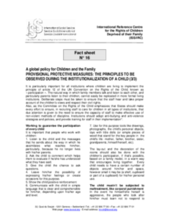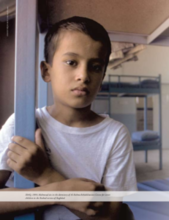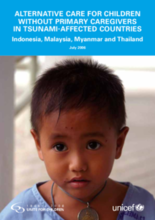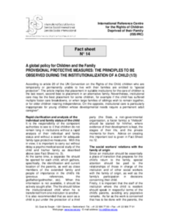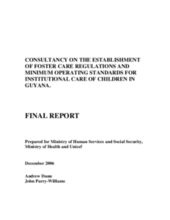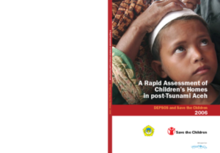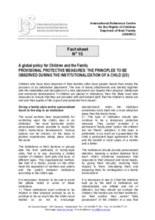Displaying 1411 - 1420 of 1510
A website that contains statistical information on children in 27 countries across Central and Eastern Europe. The site contains relevant child protection indicators, including the number of children in institutional care.
A brief 2-page document that highlights the importance of child participation, post care planning, guarding against abuse, and connecting residential institutions with the surrounding community.
This is a chapter from the United Nations Secretary-General’s Study on Violence Against Children that specifically explores the factors contributing to violence against children in institutional care and justice institutions. This chapter includes sections on the sources of violence against children in institutional care, the impact of institutional care on children’s health and development, and the populations of children most likely to become institutionalized.
An assessment of alternative care responses for children without primary caregivers in tsunami-affected regions of Malaysia, Myanmar, Indonesia, and Thailand. Includes good practices, recommendations, and detailed country reports.
Detailed examination of debate over institutional and alternative care methods for children without parental care. Includes comprehensive framework for collective action.
Examines a community-based care program for children living with HIV in Haiti called Arc-en-Ciel. Includes an overview of services provided (residential care, home based care, and community mobilization) and lessons learned.
A brief 2-page overview of what steps should be taken if and when a social worker or other community worker admits a child to a residential institution.
Detailed guidelines for the establishment of the Child Protection Service (CPS), designed to address the lack of regulations concerning standards in children’s institutions and the lack of departmental policy and procedures for assessing and assisting abused and at-risk children. Includes comprehensive set of CPS forms in 14 annexes.
Examines institutional and family care in post-Tsunami Indonesia. Includes situational analysis, key issues, and recommendations.
A brief 2-page overview of appropriate residential institution characteristics. Includes information on staffing, and the optimum size of each family-like unit.

